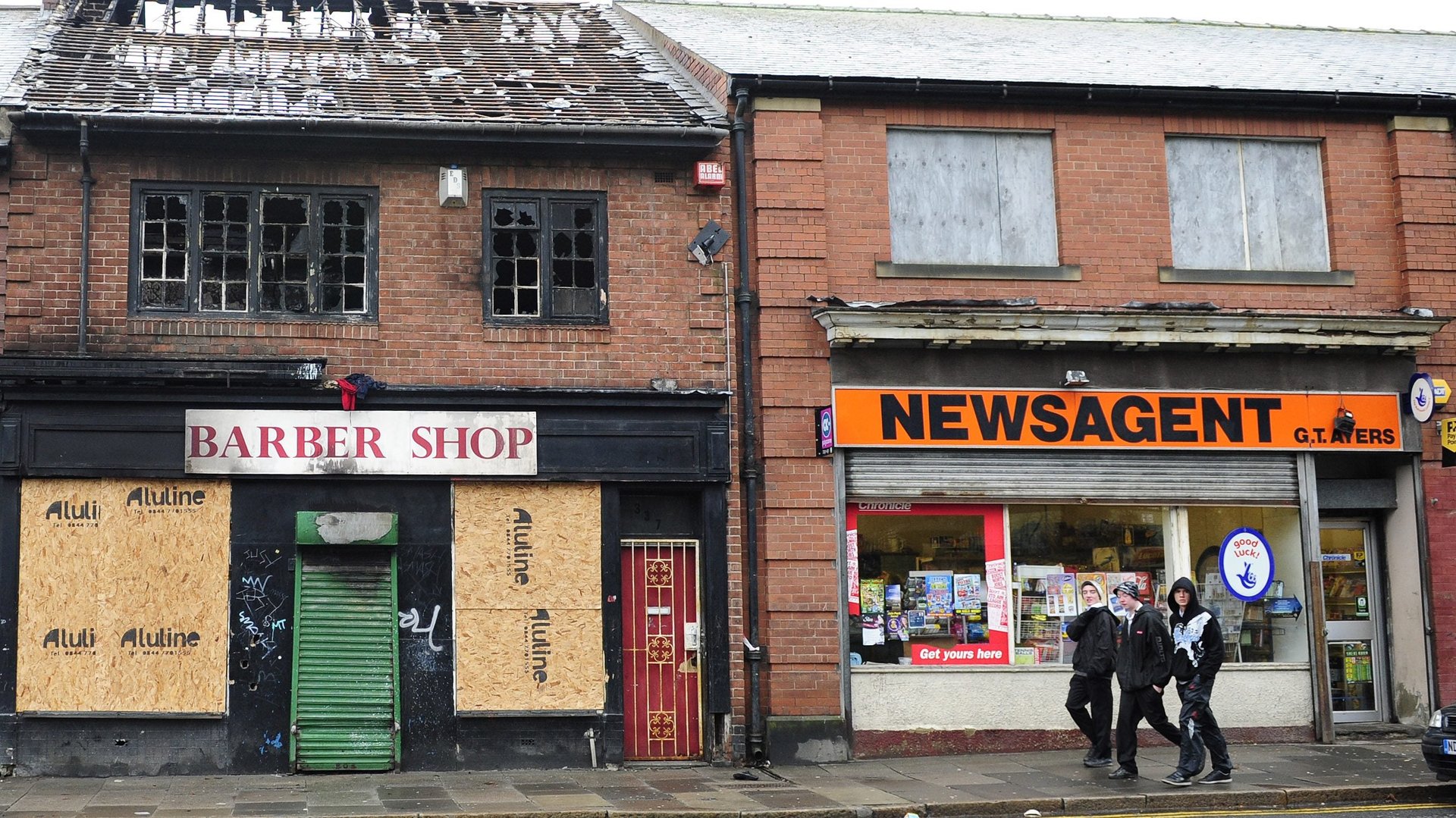2008 vs 2020: What to expect for Britons graduating into the Covid-19 recession
Young British workers became known as the “crisis cohort” after bearing the brunt of the 2008 global financial crisis.


Young British workers became known as the “crisis cohort” after bearing the brunt of the 2008 global financial crisis.
Millennials who graduated between 2006 and 2012 were less likely to find full-time jobs, and when they did find them, their employers generally paid and trained them less. They were also less likely than their parents to save for retirement and own homes, and more likely to accumulate debt. The impact was significantly more severe on young people of color, who were on average poorer (pdf) than their white counterparts to begin with.
Is Great Britain about to get a new crisis cohort? After the coronavirus brought the global economy to a shrieking halt, the Bank of England declared in May that the UK economy will enter into its deepest recession in more than 300 years. While it’s much too soon to know what impact this will have on young adults who are about to enter or have recently entered the workforce, the post-2008 era provides a useful case study.
Unemployment
The unemployment rate among 18 to 24-year-olds in the UK spiked to 20% at the start of 2012, from roughly 12% at the end of 2006, before the Great Recession.
Edward Yates, a lecturer in employment relations at the University of Sheffield, argues that conditions for young people in the UK had been worsening prior to the 2008 financial crisis (pdf), due the decline of union membership and the manufacturing sector. The situation didn’t improve much post-recession, and is likely to get significantly worse due to Covid-19.
According to the Resolution Foundation, one-third of 18 to 24-year-old UK employees who are not students have lost their jobs or been furloughed, compared to one in six adults between the ages of 25 and 54. That is because young people are more than twice as likely to work in sectors that were shut down due to Covid-19, according to the Institute for Fiscal Studies (IFS), an economic think tank. Employees at hotels, restaurants, and the like can’t work from home.
Wages
After 2008, millions of young people entered the gig economy, often becoming self-employed and taking on poorly-paid roles with little in the way of job security or protections, according to a report by the London School of Economics (pdf). These workers are now more likely to have lost their jobs. According to the LSE, the young and the low-paid—who in many cases are the same—have taken the biggest hit in terms of earnings and employment.
For many young workers, Covid-19 has been particularly hard on the pocketbook. According to the Resolution Foundation, 35% of 18 to 24-year-old employees in the UK are earning less now than they did prior to the outbreak, compared to 23% of 25 to 49-year-olds. While short-term stopgap measures such as the government’s furlough scheme have helped, in a recession, young workers are likely to face wage stagnation.
Solutions
The government has put young people at the heart of its plan for economic recovery. On Wednesday, chancellor of the Exchequer Rishi Sunak announced the launch of a £2 billion scheme to fully subsidize six-month job placements for up to 300,000 eligible 16 to 24-year-olds. Sunak also promised to pay companies £2,000 every time they hire a new apprentice under the age of 25.
While other details of the plan have yet to be released, experts have highlighted several potential pitfalls. First, it is difficult to meaningfully train someone in six months. “What type of firm can employ and deploy large numbers of young people at short notice?” Yates told Quartz in an email. The answer is likely to be large businesses at the expense of smaller ones. This also raises questions about the kinds of jobs on offer. While Sunak talked about “quality work placements,” young unemployed people could simply be told to accept whatever job they find, or risk losing their benefits.
Another issue is that the scheme offers to pay young workers minimum wage for 25 hours a week, which is only £6.45 an hour for 18 to 20-year-olds and £8.20 for those between 21 and 24. For most young people, that will not be enough to live on.
“I am doubtful the scheme will lead to good quality long-term jobs,” Yates wrote. “It is too small and too simple for that.”